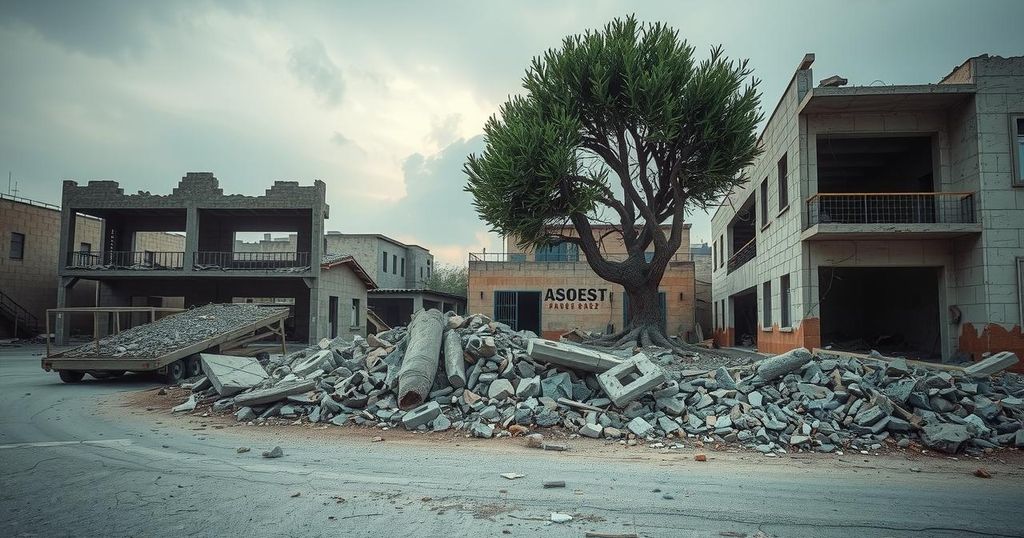Analysis of the Hezbollah Pager Explosions: Causes, Consequences, and Accountability
On a recent Tuesday, a series of explosions linked to pagers used by Hezbollah resulted in at least nine fatalities and over 2,700 injuries across Lebanon. The cause of the explosions remains uncertain, leading to speculation about a possible cyber-attack or supply chain tampering. Hezbollah has accused Israel of responsibility, while no formal claims have been made. The incident raises significant security concerns for the group amid their ongoing conflict with Israel.
On Tuesday afternoon, a series of simultaneous explosions involving pagers used by the armed group Hezbollah resulted in widespread injuries and chaos across Lebanon. Reports indicate that at least nine individuals lost their lives, while the Lebanese health ministry confirmed that approximately 2,750 people sustained injuries, with around 200 suffering serious conditions. The detonations commenced in southern Beirut and other regions, occurring around 15:45 local time. Eyewitness accounts described seeing smoke emanating from individuals’ pockets prior to witnessing small explosions resembling fireworks or gunfire. Notably, the explosions lasted for about an hour, culminating in a significant influx of injured persons to medical facilities throughout the country. Among the injured were the sons of notable Hezbollah leaders, while Iran’s envoy to Lebanon, Mojtaba Amani, suffered minor injuries and is currently undergoing medical observation. The exact mechanics behind the pager explosions remain uncertain, yet analysts have expressed disbelief given Hezbollah’s reputation for maintaining rigid security protocols. Some hypotheses include a hack leading to battery overheating, though many experts contest this possibility. More plausible is the suggestion of a hardware supply chain attack, where the pagers may have been compromised during manufacturing or transport. Such an operation would necessitate intricate planning and execution, and some experts believe the pagers could have been modified to house military-grade explosives. Currently, no entity has claimed responsibility for the explosions, although senior officials within the Lebanese government and Hezbollah have attributed the events to Israel. Information Minister Ziad Makary condemned the blasts as “Israeli aggression,” and Hezbollah echoed these sentiments, asserting that they would hold Israel accountable for its actions. Despite these allegations, Israeli officials have not commented on the incident, although analysts suspect Israeli involvement. Prof. Simon Mabon, an International Relations scholar, indicated that Israel has a history of employing technology to infiltrate its adversaries, yet he deemed the scale of this specific incident remarkable. The conflict between Hezbollah and Israel has escalated over recent months, and the repercussions of these events could potentially amplify tensions further. Security analysts have raised concerns regarding Hezbollah’s reliance on pagers for communication due to the vulnerability of mobile devices, which the group abandoned following previous incidents of targeted assassinations. This breach in communication security is expected to prompt an extensive internal investigation by Hezbollah, reflecting the gravity of the situation. There are fears that while both groups have previously sought to avoid a complete outbreak of hostilities, these recent events may alter the calculus and escalate the already dangerous situation.
In light of the ongoing tensions between Hezbollah and Israel, the explosions involving Hezbollah’s communication devices mark a critical point in the relationship between the two entities. Hezbollah has historically utilized pagers for secure communications due to the vulnerabilities associated with mobile phones, especially in the context of targeted attacks. The recent incident underscores growing concerns over Hezbollah’s internal security and the efficacy of its operational protocols.
The explosions from Hezbollah’s pagers represent a shocking development with significant implications for the group’s security and its broader conflict with Israel. As the injured flood hospitals and implications of a supply chain attack take center stage, the tensions between Hezbollah and Israel have reached a precarious juncture that may lead to further confrontations. Observers will be closely monitoring the situation as relationships between the involved parties continue to evolve.
Original Source: www.bbc.com








Post Comment